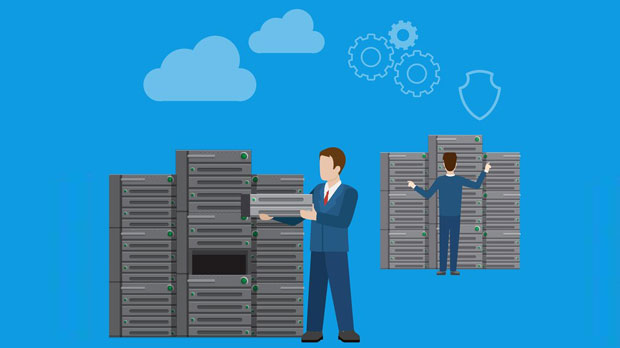When it comes to proxy services, understanding the distinction between rotating datacenter proxies and residential proxies is crucial for businesses or individuals seeking to enhance their online activities, such as web scraping, data collection, or anonymity. Rotating datacenter proxies are typically faster and more affordable, making them ideal for high-volume tasks that don't require absolute anonymity. In contrast, residential proxies offer a higher level of authenticity, as they route through real residential IP addresses, providing more reliability for tasks that require real-world identity and location data. The question remains: how big is the difference between these two types of proxies, and which one should you choose? In this article, we will explore their unique features, benefits, drawbacks, and which situations each type excels in. What Are Rotating Datacenter Proxies?Rotating datacenter proxies are sourced from data centers, meaning they don’t originate from real residential locations. Instead, they use IP addresses provided by data center servers, often in bulk, to ensure a quick and consistent connection. These proxies are called "rotating" because they automatically switch IP addresses at specified intervals, providing an additional layer of anonymity and preventing IP bans or throttling when used for web scraping or other high-volume tasks. Key Features of Rotating Datacenter Proxies1. Cost-Effective: Since they are generated from data centers, they tend to be cheaper than residential proxies, making them a budget-friendly option for businesses that need a large number of proxies. 2. High Speed: Datacenter proxies typically offer faster speeds, as they are hosted in specialized data centers with high-performance infrastructure.3. Anonymity: rotating proxies can help maintain anonymity by cycling through different IP addresses, but since they come from data centers, they can still be detected by some websites, particularly those with advanced bot detection systems.4. Use Case: These proxies are ideal for scraping websites, automating tasks, and general browsing where complete anonymity isn’t as important as speed and cost efficiency.What Are Residential Proxies?Residential proxies, on the other hand, use real IP addresses provided by Internet Service Providers (ISPs) to route traffic. This gives them a unique advantage in that they appear as genuine users, since the IP addresses belong to real households, not servers in a data center. They are often used when the highest level of anonymity and trustworthiness is required. Key Features of Residential Proxies1. Higher Authenticity: Because these proxies route traffic through real residential addresses, they are harder to detect as proxies. This makes them particularly useful for tasks that require a high degree of legitimacy, such as accessing geo-restricted content or circumventing strict bot detection systems.2. Greater Trust: Websites are less likely to block or restrict access from residential IPs, as they originate from legitimate internet users. This makes them more reliable for delicate tasks like account management or pricing research.3. Slower Speed: Residential proxies tend to be slower compared to datacenter proxies due to their reliance on real residential connections, which might not have the same level of infrastructure support as data centers.4. Cost: Residential proxies are usually more expensive because they come from a network of real users, and maintaining this infrastructure adds to the cost of the service.Comparing Rotating Datacenter Proxies and Residential Proxies 1. Performance and SpeedRotating datacenter proxies tend to outperform residential proxies in terms of speed. This is because data center infrastructure is specifically designed to handle large amounts of data traffic quickly, whereas residential connections can vary in speed depending on the location and the quality of the internet connection. For activities like high-frequency scraping or automated tasks, the speed of rotating datacenter proxies is a clear advantage. 2. CostCost is a significant factor when deciding between the two options. Rotating datacenter proxies are much more affordable, especially if you need a large number of IP addresses for bulk operations. Residential proxies are priced higher because they rely on real user IPs, and the cost to maintain this network is much more expensive. If budget constraints are a concern, rotating datacenter proxies are the more economical choice. 3. Anonymity and Detection ResistanceResidential proxies offer a higher level of anonymity and are far less likely to be flagged by websites as proxy traffic. Since the IPs are linked to real-world homes, websites are more likely to accept them as legitimate. In contrast, datacenter proxies are more easily detected and blocked, as many websites can identify traffic coming from known data center ranges. If maintaining an untraceable identity is crucial, residential proxies are the better option. 4. Use Cases and Applications- Rotating Datacenter Proxies: Best for tasks that require high-speed, high-volume data collection, like web scraping, SEO analysis, or price comparison across multiple websites. They are also well-suited for tasks that do not require high anonymity, such as market research.- Residential Proxies: Ideal for activities that require human-like behavior and access to location-specific content or accounts. They are preferred for tasks such as managing multiple social media accounts, sneaker or ticket buying, and bypassing geo-restrictions.Which One Should You Choose?The choice between rotating datacenter proxies and residential proxies ultimately depends on your specific needs:1. If speed and cost are your main concerns, rotating datacenter proxies will likely serve you better. They are perfect for data-heavy tasks like web scraping or large-scale automation where a high level of anonymity is not required.2. If trust, authenticity, and high security are paramount, residential proxies are the better option. They are more expensive, but they provide a much higher level of protection against detection and can help you stay under the radar on platforms with strict security measures.In many cases, businesses may choose to use both types of proxies, leveraging the speed of datacenter proxies for bulk tasks and switching to residential proxies when they need extra protection or are working with sensitive data.ConclusionWhile rotating datacenter proxies and residential proxies differ significantly in terms of cost, speed, and detection resistance, both types offer valuable features depending on the task at hand. If you're dealing with high-volume, low-anonymity tasks, rotating datacenter proxies provide an efficient and budget-friendly solution. On the other hand, if your activities demand the highest level of authenticity and privacy, residential proxies are worth the investment. Understanding the strengths and weaknesses of both can help you make an informed decision based on your needs, ensuring you achieve the best results for your online operations.
Aug 19, 2025



































































